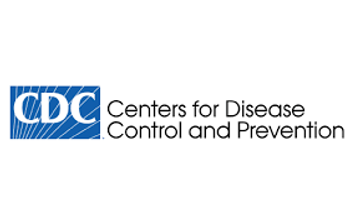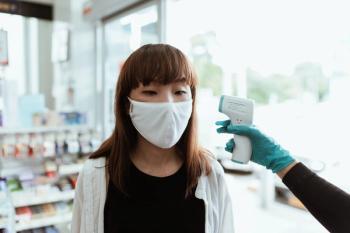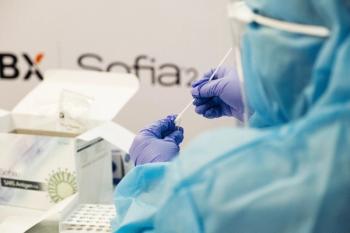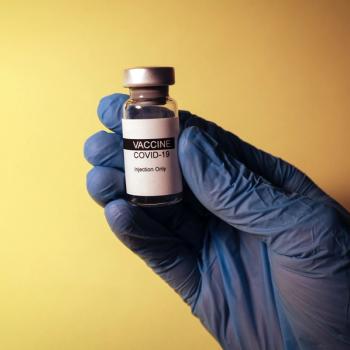
With the news that the Pfizer and BioNtech COVID-19 vaccine vials can provide an extra dose, the federal agency updated the labeling so as to enable usage of low dead-volume syringes to extract it.

With the news that the Pfizer and BioNtech COVID-19 vaccine vials can provide an extra dose, the federal agency updated the labeling so as to enable usage of low dead-volume syringes to extract it.

Among people living with HIV, lower white blood cell counts were associated with smaller brain volume in the hippocampus and thalamus, a new study found, suggesting the possibility of generalizable neurologic signatures of HIV infections.

Good compliance to guidelines can help workplace and schools to reopen safely.

Intestinal-type metaplasia of the esophagus and stomach aberrantly express the proteins critical for SARS-CoV-2 binding.

In a move being ill-received by clinicians, the COVID-19 vaccine producer is lessening the count of vials being supplied to the government through July.

The method allows mitochondrial DNA levels to be quantified directly in the blood, without requiring intermediate steps.

Project aims for additional good-paying jobs, combatting the climate crisis, advancing racial equity, and building back better than before.

Presence of GI symptoms with COVID-19 was associated with increased likelihood of severe illness.

If the current recommended dosing schedules for the vaccines are not “feasible,” then the agency said vaccines may be scheduled for administration up to 42 days between the first and second doses.

The President declared a “full-scale wartime effort” to combat the ongoing pandemic.

The cabotegravir and rilpivirine formulation was approved on the basis of 2 trials assessing its viral suppression capability in 1100-plus adults with HIV.

Viral loads in treatment group were consistent with previously disclosed data from the BLAZE-1 trial.

Discovery may have important implications on vaccine development and efficacy.

Anthony Fauci, MD, made the announcement Thursday morning to the World Health Organization’s (WHO) executive board.

Following the resignation of Stephen Hahn, MD, at the very end of the Trump administration, Janet Woodcock, MD, has been appointed as acting commissioner of the US Food and Drug Administration (FDA).

Avian flu outbreaks have been detected in countries all over the world, but influenza activity in humans remains uncharacteristically low for this point in the season.

Smaller cities and towns with a short supply of intensive care units and tight budgets need effective precautionary measures.

A large fraction of non-exposed individuals have T cell reactivity to COVID-19 peptides.

Affordable, accurate testing that can detect new variants of the disease is paramount in halting it’s spread.

“Federated learning,” a new machine learning technique, could improve prediction of COVID-19 outcomes and enhance patient triage and care.

An assessment of literature on imaging findings of children with coronavirus disease 2019 (COVID-19) found more systematic reviews than primary studies, raising concerns about wasteful repetition, according to a research letter in JAMA Network Open.

With vaccines being approved, less attention has been devoted to evaluating drug-based transmission blocking strategies.

Causative organism details in patients with ICU-acquired infections has had limited reporting.

There currently remains a need to easily, accurately and rapidly assess whether an individual has a fever.

A study found patients with acute infection and those with viral rebound after antiretroviral therapy interruption had the highest viral resistance to type 1 interferons.

An online survey-based assessment showed older adults and minorities have been more likely to wear masks in public.

A plethora of new studies has provided the data needed to evaluate the types of tests, and types of samples collected, in order to make informed recommendations.

In organizations with 50 or fewer employees, an average of only 29% of healthcare workers had been offered the vaccine.

The US tops the list of total vaccine administrations despite a lagging rollout and ongoing issues.

Current trial evidence is severely lacking for the at-risk group, but does clinical history suggest safety?